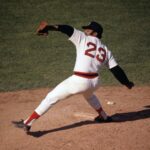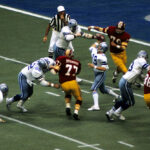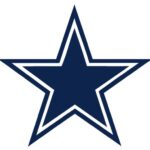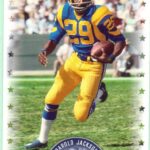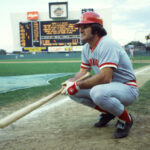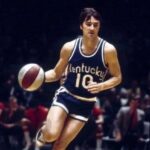Elvin Hayes: The Big E
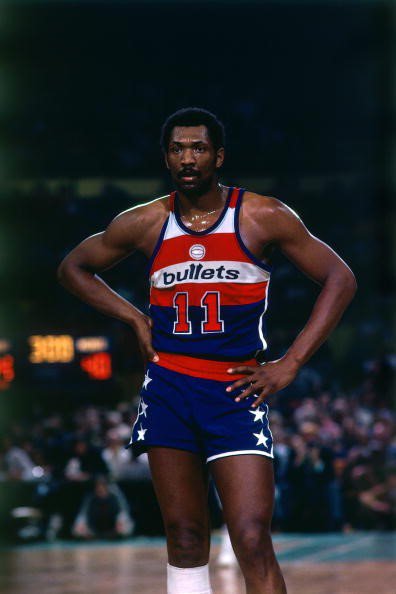
The Vintage Sports Then and Now Athlete of the Month came to national prominence in college basketball’s “Game of the Century” and then won an NBA title while becoming one of the top players in league history.
A three-time college basketball All-American at the University of Houston, Elvin Hayes helped lead the Cougars to three straight NCAA Tournaments and a pair of Final Fours.
Hayes and fellow All-American Don Chaney led the Cougars to the regional semifinals of the 1966 NCAA Tournament before losing to Oregon State 63-60. Hayes averaged 27.2 points and 16.9 rebounds per contest.
As a junior, Hayes averaged 28.4 points and 15.7 rebounds per contest as the Cougars posted a 27-4 record. In the Midwest Regional of the 1967 NCAA Tournament, Houston defeated Kansas and SMU to earn a national semifinal date with UCLA and All-American Lew Alcindor.
Houston lost to the eventual champion Bruins 73-58, but Hayes registered 25 points and 24 rebounds in the contest. In an era when there was a third place game, Hayes scored 23 points with 16 rebounds as Houston dominated North Carolina 84-62.
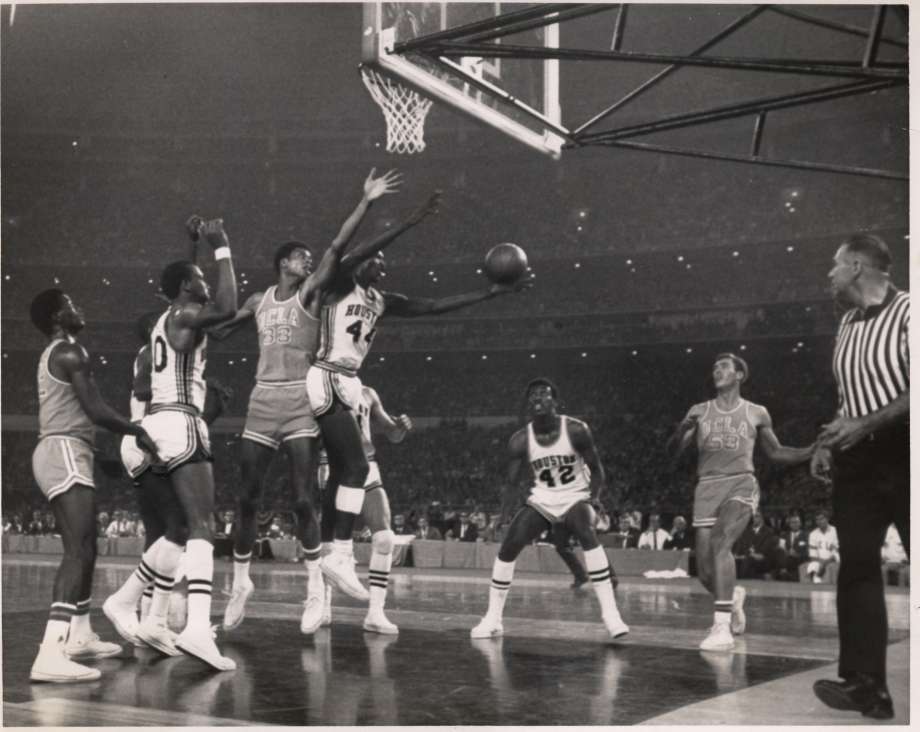
On January 20, 1968, Houston hosted UCLA in the Houston Astrodome in the first-ever regular season nationally televised college basketball game. Dubbed the “Game of the Century”, the game was played in front of a record crowd of 52,693 as well as a national TV audience. The game did not disappoint as Hayes scored 39 points with 15 rebounds as Houston ended UCLA’s 47-game undefeated streak with a 71-69 victory. Alcindor was hampered by an eye-injury and was limited to only 15 points.
The two teams would meet again at the semifinals of the NCAA Tournament in Los Angeles. Houston entered the game undefeated while UCLA was looking to avenge their only loss of the season. UCLA coach John Wooden deployed a “triangle and two” defense with Alcindor playing behind Hayes and Lynn Shackleford playing in front. Hayes was held to 10 points in the 101-69 UCLA victory.
Following the season, Hayes was made the first pick in both the NBA and ABA drafts. He chose to join the San Diego Rockets of the NBA rather than the Houston Mavericks of the ABA.
Hayes was named the NBA Rookie of the Year while averaging a league-high 28.4 points per contest. He spent three seasons in San Diego before the Rockets ironically moved to Houston.
However, the homecoming did not last long as Hayes spent only one season back in Houston before he was traded to the Baltimore Bullets (who later moved to Washington).
After playing center with the Rockets and being the primary offensive weapon, Hayes moved to power forward with the Bullets. In addition, after being part of a squad that didn’t have a winning record and made only one playoff appearance in four years, he moved to a veteran team capable of contending for a championship.
During his first season with the Bullets, the squad posted a 52-30 record and claimed the NBA Central Division title. They lost to the eventual champion New York Knicks in the first round of the playoffs.
The Bullets lost in the Eastern Conference semifinals again the next season. During the 1974-75 campaign they went 60-22 in the regular season. They defeated the Buffalo Braves and Boston Celtics to reach the NBA Finals before losing to the Golden State Warriors.
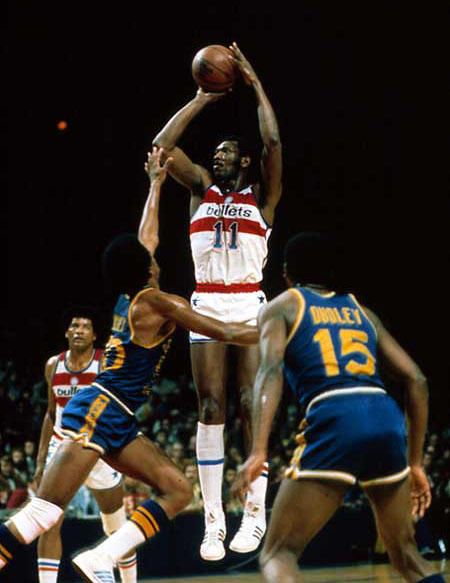
Hayes continued to be a consistent scorer and rebounder over the next two years as the Bullets lost both years in the Eastern Conference semifinals.
Though their 44-38 record during the 1977-78 season was their worst since before Hayes arrival, the Bullets defeated the Hawks, Spurs and 76ers to reach the NBA Finals.
Facing the Seattle Supersonics, the Bullets trailed in the series 2-1 before playing a dramatic overtime game at the Seattle Kingdome. Hayes scored 20 points with 13 rebounds as the Bullets won 120-116.
After losing game five, Hayes had 21 points, 15 rebounds and five blocks in game six and 12 points with 8 rebounds in the decisive seventh game to help lead the Bullets to the title.
The next season the Bullets improved to a 54-28 record and won the Atlantic Division. After being pushed to seven games by the Atlanta Hawks in the first round of the playoffs, the Bullets trailed the San Antonio Spurs three games to one before winning the final three games to reach the finals for the second straight year.
Hayes had 24 points and 22 rebounds in game five against the Spurs to get the Bullets back in the series. He had 25 points and 14 rebounds in game six and then 25 points and 15 rebounds in the decisive seventh game.
The NBA Finals was a rematch of the 1978 finals with the Bullets again facing the Seattle Supersonics.
Washington won the first game, but then Seattle claimed the next four to dethrone the Bullets and win the NBA Championship.
An aging Bullets team posted a losing record the next two seasons and after 23 points per game during the 1979-80 season, Hayes dropped to 17.8 points per game and failed to average double digits in rebounds per game for the first time in his career during the 1980-81 campaign.
He was traded back to Houston prior to the 1981-82 campaign. Hayes averaged 16.1 points per game as the Rockets went 46-36. They lost to the Supersonics in the opening round of the playoffs.
Hayes played two final seasons with the Rockets before retiring. At the time of his retirement, Hayes ranked third all-time in points scored with 27,313 and is still 10th in NBA history. His 16,239 career rebounds is still ranked sixth in league history.
He was inducted into the Naismith Basketball Hall of Fame in 1990 and the College Basketball Hall of Fame in 2006. In 1997 he was named to the NBA 50th Anniversary All-Time team.
